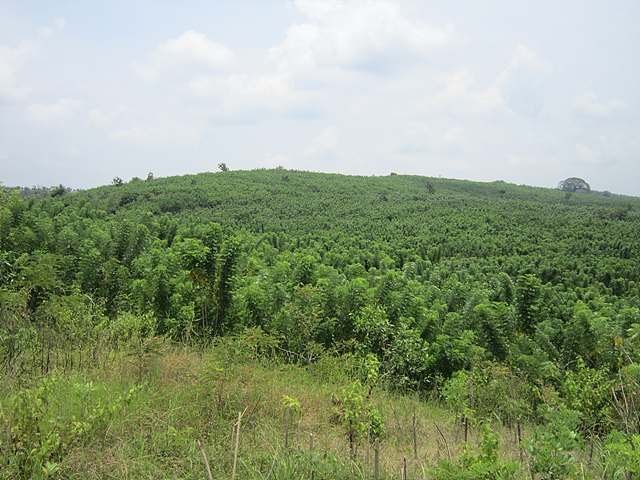 |
| The Korea-Indonesia joint forest biomass plantation in the Indonesian city of Semarang, central Java (KFS) |
Korea’s forest authorities vowed to strengthen their overseas base for fostering biomass industries, a potential mainstay of the South Korean renewable energy industry.
The Korea Forest Service has sought a business model of forest biomass energy and encouraged business enterprises and investors to engage in that industry with great potential, with a total budget of 748 million won ($656,000).
KFS’ strategy spans over four sectors — tree tendering, sapling production and research, exchange of knowledge and consulting — for Korea’s potential exporters to the Indonesian forest biomass market.
KFS allocated 423 million won, or 56.6 percent of the total fund, for the systemic tendering and monitoring of forest plantations created to produce biomass energy. This operation covers the 1,001.8-hectare biomass plantation in Semarang, Central Java, Indonesia.
The Indonesian state-run afforestation company is in charge of the on-site management, under supervision of KFS’ Indonesian office
KFS assigned 125 million won, or 16.7 percent of the budget, for the management of the saplings and supporting centers. This includes a research center for the development of alternative plantation specimens of the major biomass-producing trees.
The sapling farm also functions as a research and community education center, where locals can visit and learn skills on forestry farming.
A total of 80 million won, 10.7 percent of the plantation budget, was spent on Korea-Indonesia exchange programs for forestry education and the international symposium on forest biomass.
In exchange programs, Indonesian biomass experts were invited to Korea to lecture on Korea’s current status on the overseas afforestation market and the business outlook for global wood pellets as a source of renewable energy. The KFS also invited Korean businessmen to Indonesian plantations for training.
The KFS injected 120 million won into consulting and information services for potential exporters to the Indonesian forest biomass market.
The KFS accepts applications for state loans twice a year, in March and July, from South Korean exporters engaging in the Indonesian forest biomass and related businesses.
By Chung Joo-won (joowonc@heraldcorp.com)

